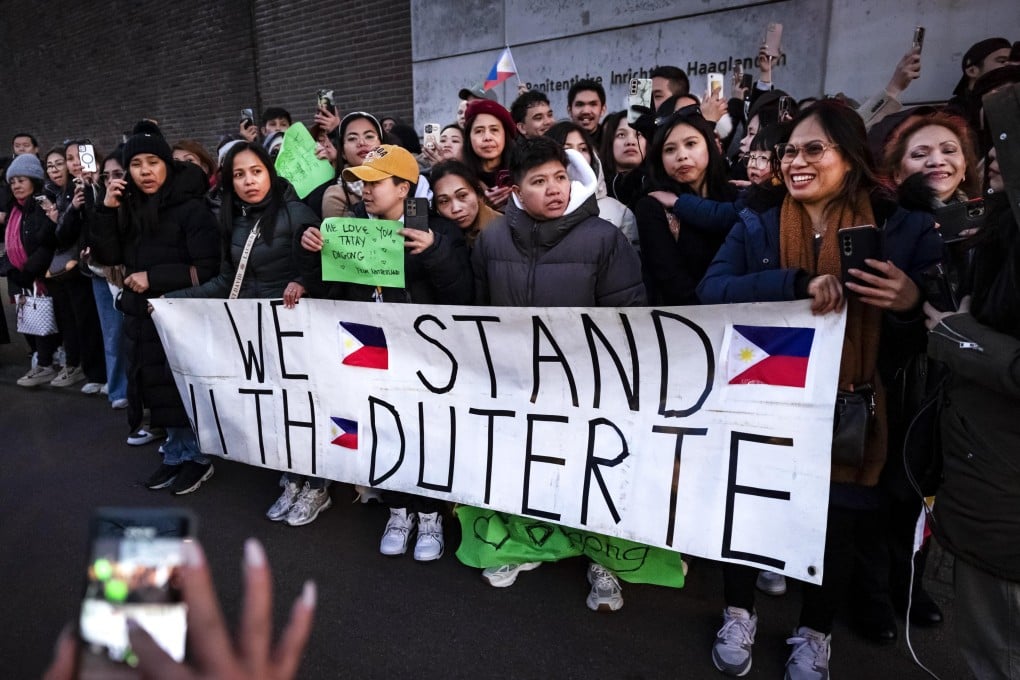My Take | Domestic politics is why Rodrigo Duterte is facing the International Criminal Court
Former Philippine president’s detention made possible by local rivalry, but a similar fate for Putin and Netanyahu will not happen any time soon, if ever

Just last week, he was in Hong Kong telling his supporters, many of them domestic helpers, that he never committed crimes against humanity and that everything he did was for his country.
Now, he is being detained at The Hague on charges of the same crime. Few outsiders anticipated the downfall of former Philippine president Rodrigo Duterte to be so quick. He and his daughter Sara, the current vice-president, thought his successor Ferdinand “Bongbong” Marcos, scion of their rival clan, wouldn’t dare touch him. That turned out to be a fatal miscalculation.
Of course, charges may still be dropped. He may yet be proved to be innocent. But he is now at the mercy of the International Criminal Court (ICC). Some observers have questioned the court’s impartiality. Beijing has asked the ICC not to politicise the arrest, whatever that means.
Here’s a headline from an Indian newspaper, “Philippines’ Duterte arrested as Putin, Netanyahu roam free: Has ICC now become a political tool?”
Many critics of the Vladimir Putin and Benjamin Netanyahu regimes in Russia and Israel respectively have voiced a similar sentiment. Both leaders are facing similar charges, in addition to war crimes.
But don’t blame the ICC. Duterte’s arrest through Interpol has everything to do with the domestic politics of the Philippines. ICC officials simply took advantage of it as any such arrest depends on the cooperation of the country in which the accused resides or through which he or she travels. No such cooperation exists in Russia or Israel, and Putin and Netanyahu have been far more cautious with their travels than Duterte. He might have been safe in Hong Kong, a Chinese territory, but he ended up being arrested at a Philippine airport upon his return. Carelessness, arrogance, or both? Father and daughter were rallying for expatriate Philippine voters in Hong Kong for May’s midterm polls.
